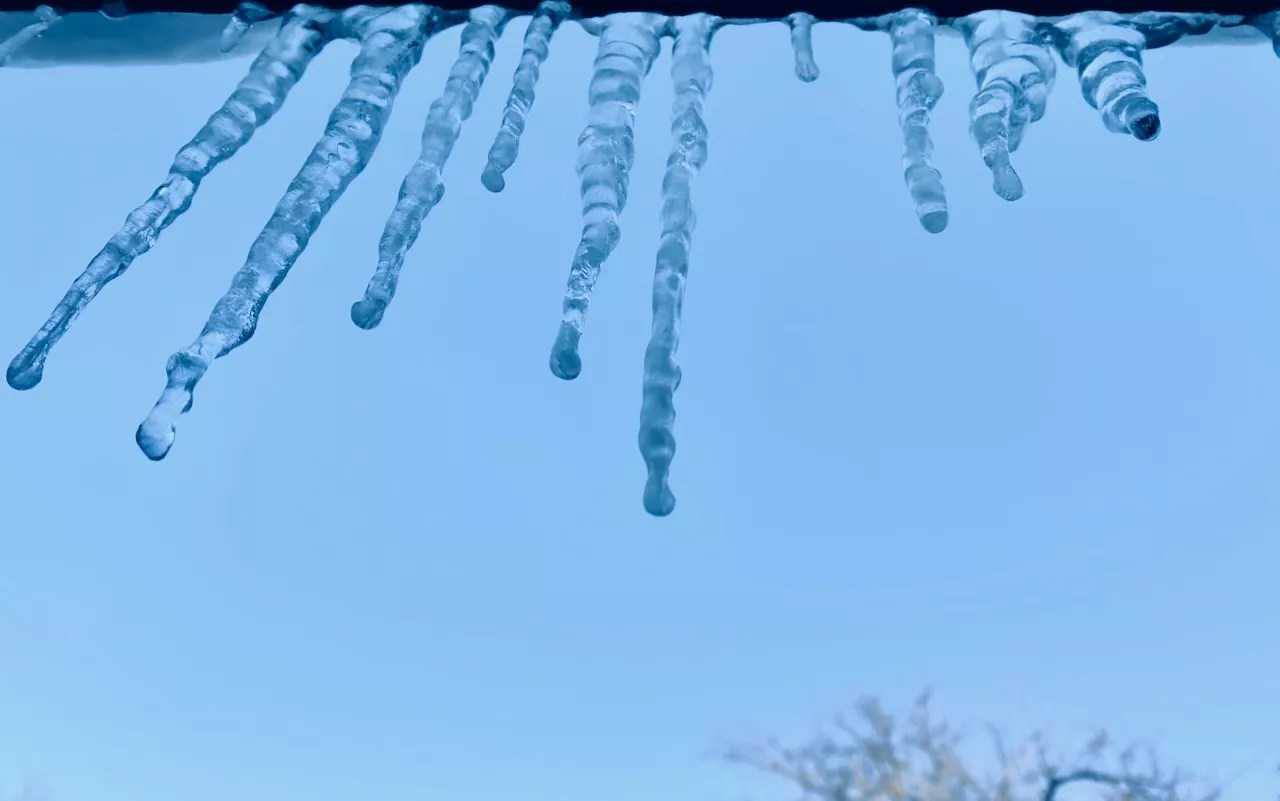
Lauren Drewes Daniels

Audio By Carbonatix
Well, 2021 certainly is making a show of itself. If you’re experiencing power loss, we really hope, all toes and fingers crossed, your power is restored soon. And in case we’ve got a few more days of this ahead of us – and it looks like we do – we did some digging into how best to deal, both in terms of making the best of a cold house and making sure you have some hot coffee in the morning.
Be a Heat Trap
While a lot of this may seem like common sense, there’s a level of cold where all you can think about is being cold, so let’s start with the basics. Katie Herrel with Backpacker created a “Beginners Guide to Winter Camping,” which like it or not, a large portion of North Texas is dabbling in this week.
Be sure to dress in layers and don’t underestimate the importance of hats and gloves. “Choose a thick warm hat. Mittens are more versatile than gloves, just pull them off briefly for dexterity needs,” Herrel writes.
Finding a way to stay busy and move (jumping jacks or a TikTok dance video) is crucial. And when you’re done, Herrel says to keep on or put on more warm clothes to “preserve the heat you generated.”
Sleeping is really the most uncomfortable time. The Backpacker guide suggests finding activities that allow you to keep your mind occupied and also stay snug under covers. “Plan to spend lots of bag time, so have an activity to pass the dark house, like a good book, good conversation, games or simple but multi-course meal,” the guide says. Maybe finish that cross-stitch you started last March.
“If you start to chill,” Herrel writes, “don’t just sit there in misery. Go on a walk, do sit-ups or deep knee bends. Generate metabolic heat.”
Preserve Warm Liquids When You Can
From personal experience camping in the cold, mornings can be downright brutal. Because no coffee. And cold. Debrajean Scheibel has a house in Maine. She usually cuts out before the worst of winter sets in, but she knows how to endure the wild cold darkness.
“During rolling blackouts, boil water and put it in a thermos, same with coffee or soup, depending on the length of time for the rolling outages,” Scheibel says.
So, even though we’re all trying to conserve grid energy, leave one signal light on at night so you’ll know if the power is on or off. If you get power anywhere near dawn, go boil water or make coffee and throw it in a thermos for later.
Cold Wood Is Hard to Burn
Scheibel also stresses the importance of planning ahead if you have a fireplace with plenty of dry kindling and firewood. Cold wood is much harder to light than not-so-cold wood. Be sure to store extra firewood in the house, so it will light easier.
The National Weather Service issued some advice that seems pretty common sense-like on keeping the house warm:
• Close blinds or curtains to retain some heat. Maybe even throw an extra quilt over a breezy window.
• Close off rooms to avoid wasting heat.
• Stuff towels or rags in cracks or under doors.
• Eat often to continually provide your body energy, which helps keeps you warm. And be sure to hydrate, although “they” say to avoid caffeine and alcohol.
It’s About to Be Busted Pipe Season
In terms of keeping the house working, Robert Jordan with RJ Construction – who is sort of an Anderson Cooper of home repair; you don’t really want to see him at your house, but if you do, then you’ll be glad it’s him – says faucets should remain running, not just dripping, in different parts of the house. Keep cabinet doors under sinks in bathrooms and in the kitchen open. He also says if you do find a faucet not working, use a hairdryer to thaw frozen pipes, never a flame or hot water.
The American Red Cross reminds us to never run a generator inside a home, basement, garage, crawlspace or any partially enclosed area. Use flashlights in the dark, not candles. And even though it’s really cold, keep your refrigerator and freezer doors closed if you lose power.